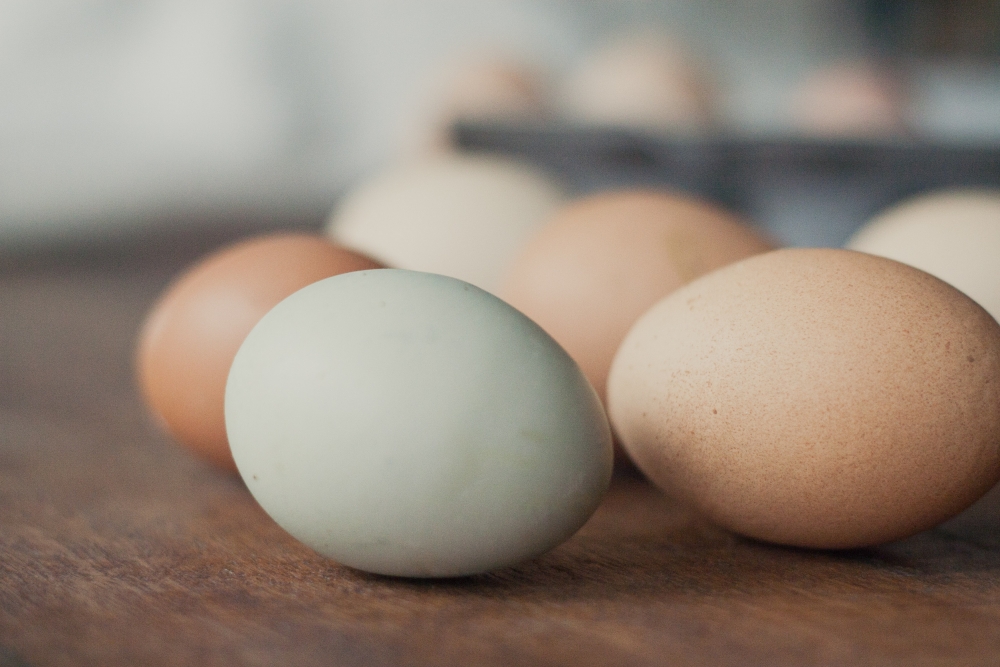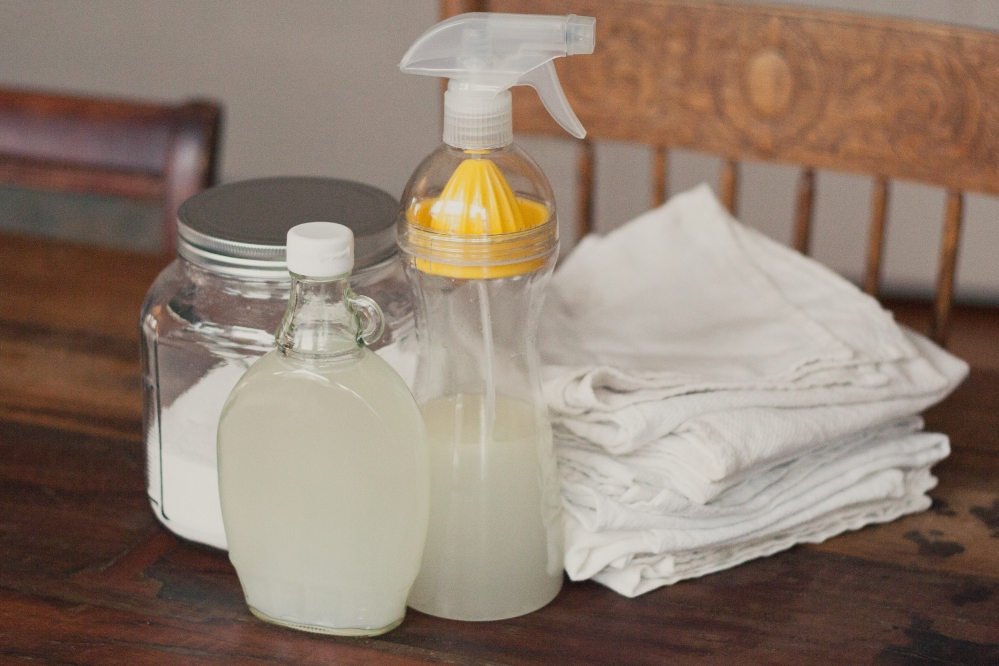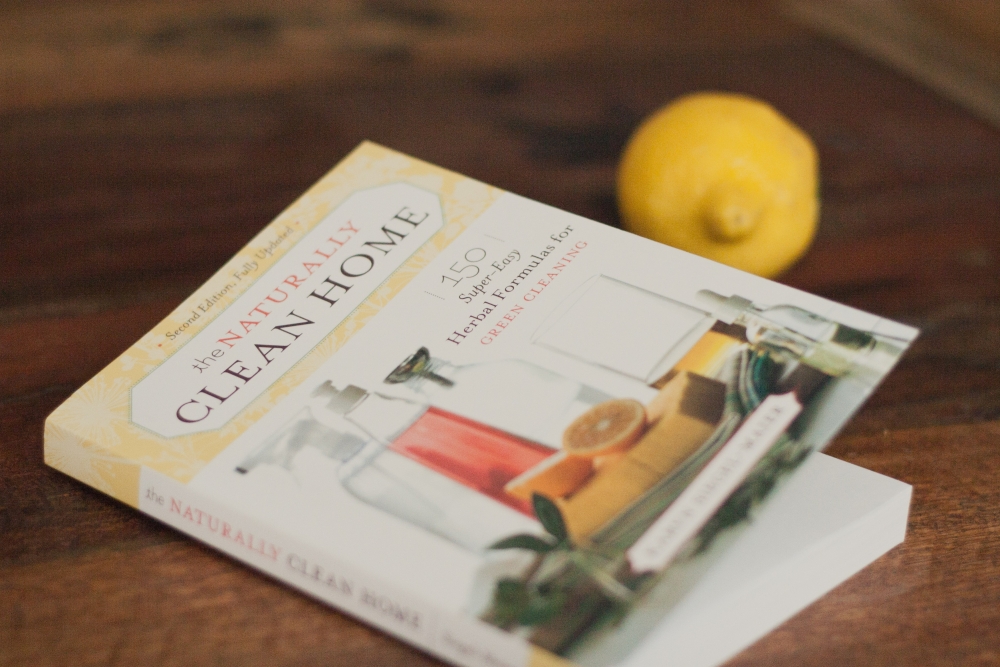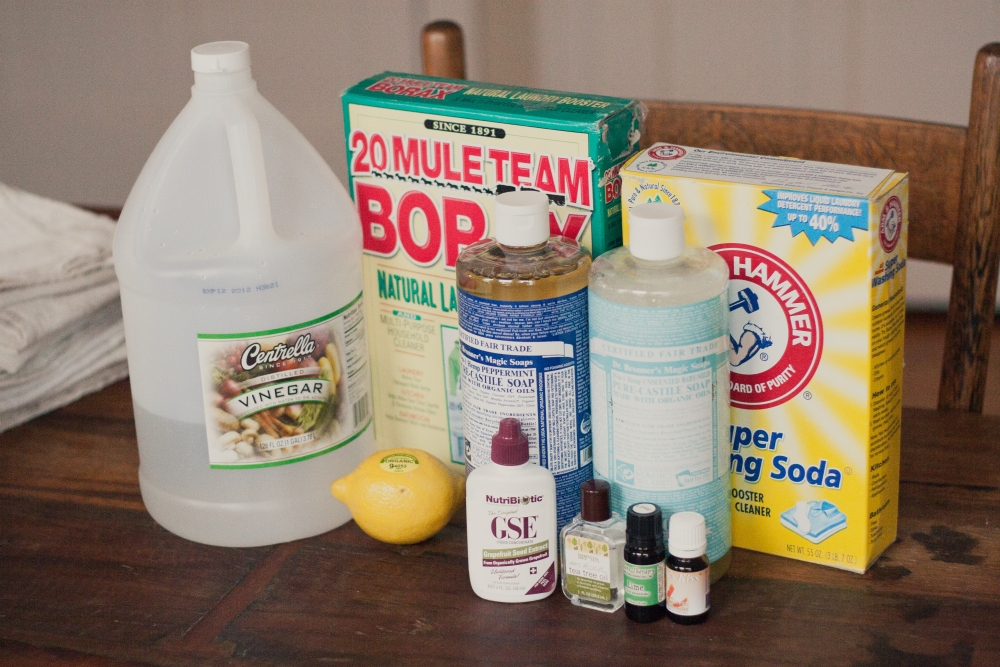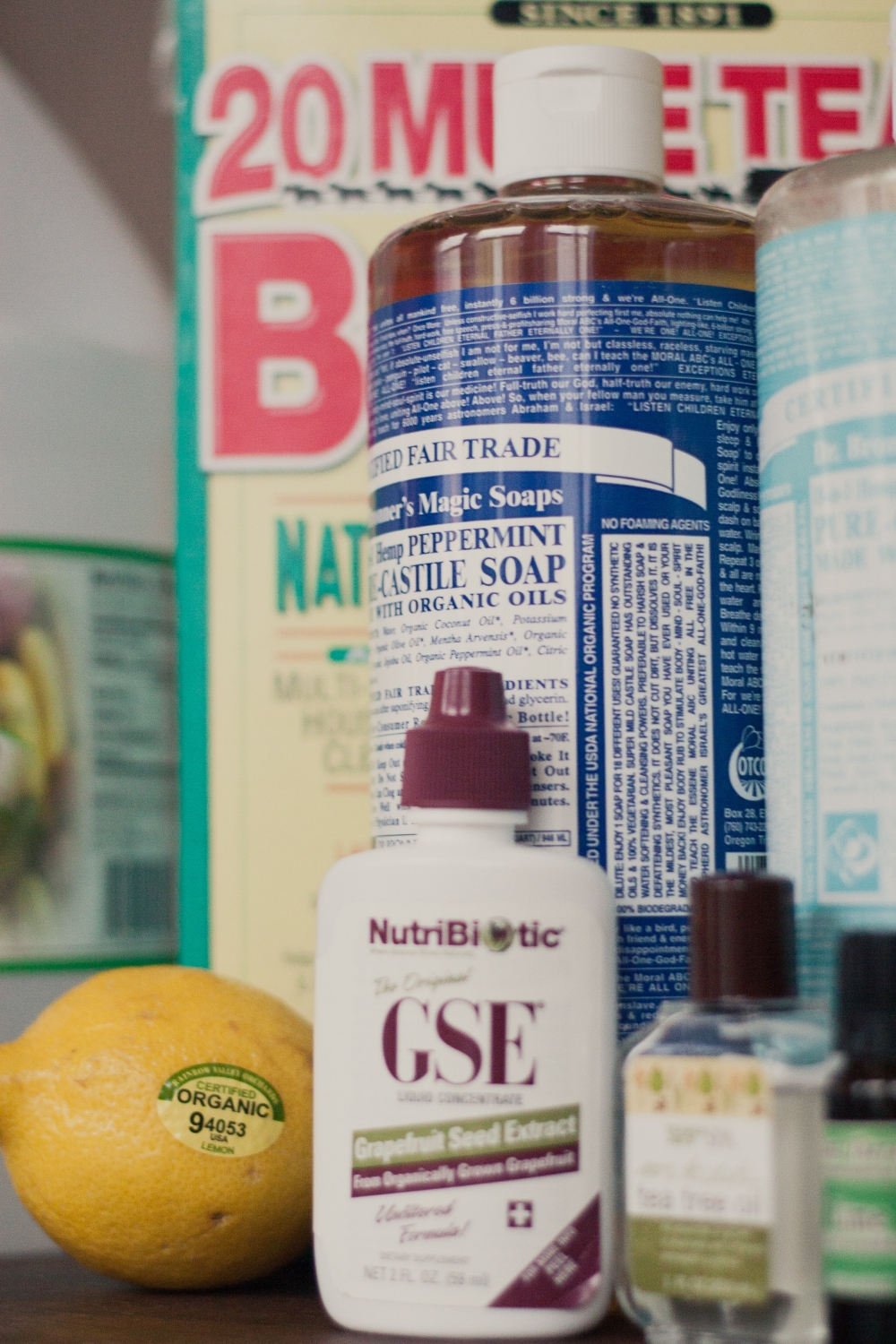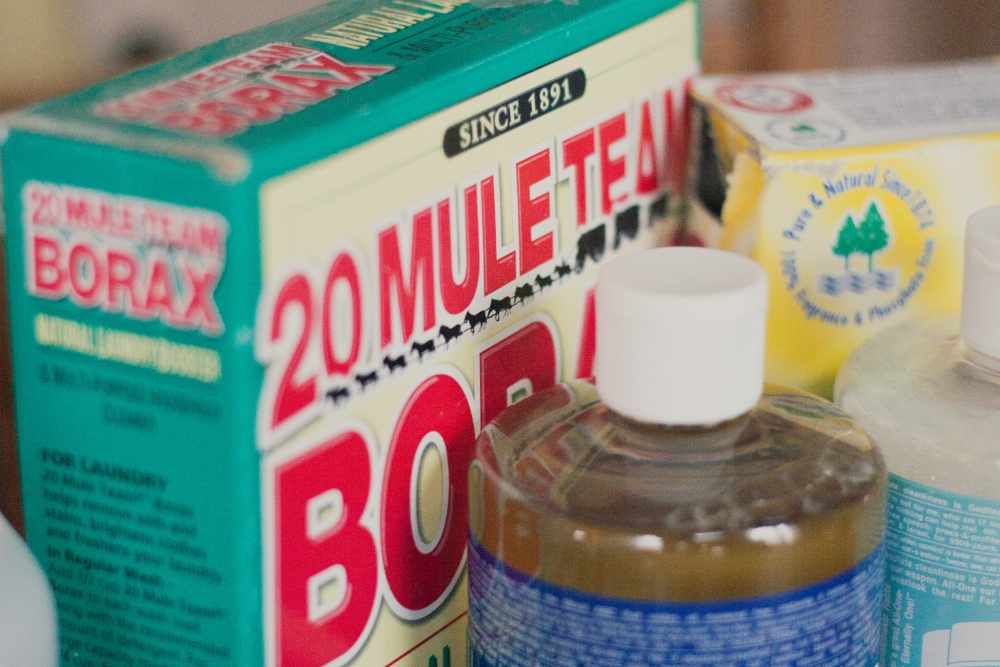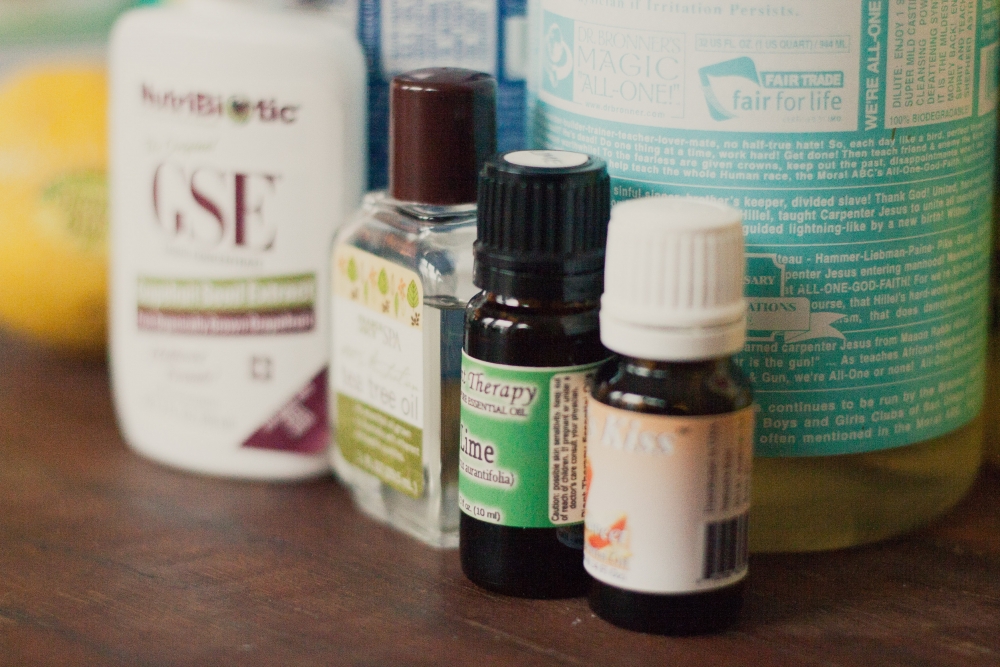real food
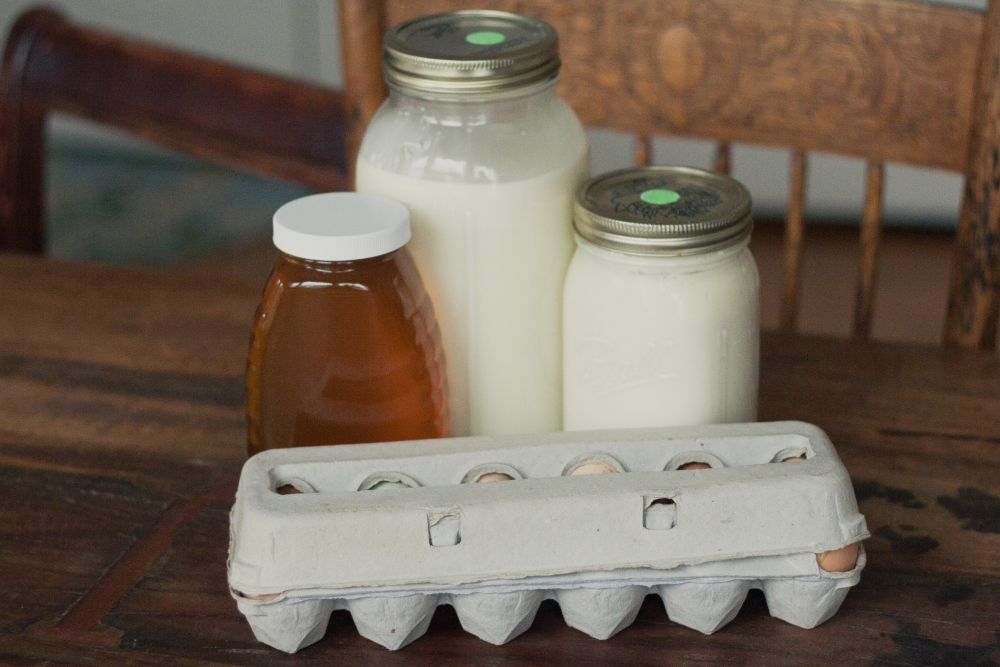
Alan and I have been processing a lot of food related philosophies recently. It's always been an on and off conversation during the course of our marriage, but when I accidentally stumbled across the Weston A. Price Foundation's website a few months back, the conversation got a pretty good nudge. Then my blogger friend Courtney over at For the Beauty recommended Real Food for Mother and Baby by Nina Planck (my new go-to recommendation for any women who are planning on, or already are, pregnant, or who are nursing or have a baby - you must read this book), so I went ahead and grabbed a copy of that, along with Nina Planck's other book simply titled Real Food (my new go-to recommendation for everyone) and read both of them in less than a week. We watched Food Inc. for the first time (a little late, I know, and maybe a bit cliche, but its full of important information nonetheless), and all of those things together have finally started to solidify the conversation in a way that is literally changing our lives. I think a lot of people watch Food Inc. and their reaction is to eat fewer animal products, or none at all. But reading Real Food helps to really bring the thought process full circle. The point is not to avoid animal products and fats, but rather to eat them as they should be. Animal products have really been demonized in the past several decades, but the problem is with the industrialized versions of those things, not the products themselves. Animal products and fats are an integral part of a healthy diet, and you make a greater impact when you support traditionally, healthily farmed animals than when you eat none at all. Our food philosphy is pretty simple now: we want to eat real food, food that is as close as possible to its traditional forms. This means whole raw milk from grass fed cows, lots of grass fed butter, properly fed meat along with its fat, whole eggs from pastured chickens, whole grains, plenty of seasonal vegetables, and traditional oils like olive and coconut oil. The health benefits of these foods are practically innumerable. The things to avoid are industrial animal products, new refined vegetables oils (like corn, sunflower, and soybean), refined flours and sugars, and of course anything artificial. We're not going to be anal about this, but we're going to attempt to make it be the majority of our diet.
We are lucky enough to have a private farm club called Moograss Farms that has pick up every week at a private residence literally 2 minutes from our house (to find similar opportunities near you, check out Eat Wild). Through them we have access to raw, pastured dairy, eggs, beef, pork and poultry products, as well as local honey and produce, just to name a few. Yesterday we picked up our first order: a half gallon of raw milk, yoghurt, eggs, honey, ground beef, bacon, and a whole chicken.
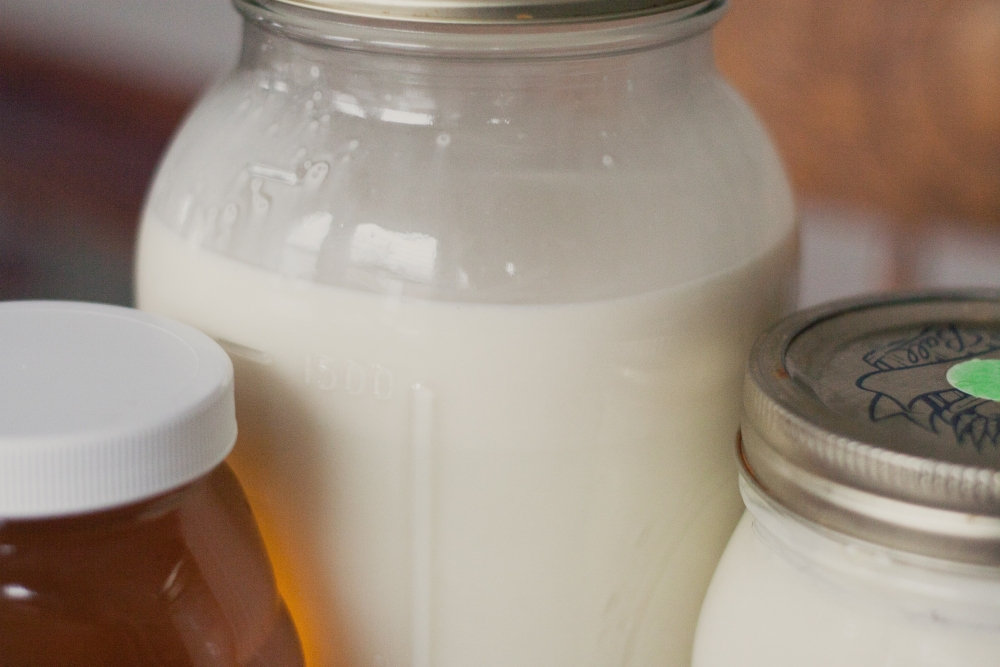
It is illegal to sell raw milk in stores in many states, so this is the first time in my entire life that I have tried raw milk. Honestly, I don't know what exactly I was expecting. . . but the milk is downright luxurious. It tastes smoother and cleaner than any milk I have ever had before. I love shaking the line of cream into the milk and pouring it out of these mason jars. This is how milk should be experienced. It truly is a sort of super food.
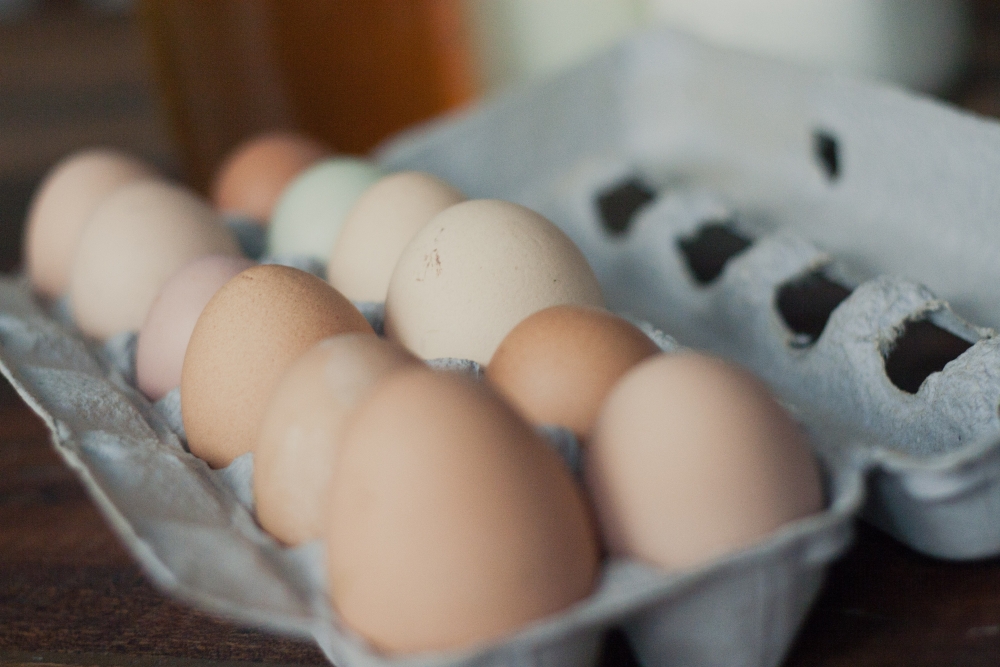
I'm really rather seduced by the eggs. They're a variety of sizes and colours, as they should be.
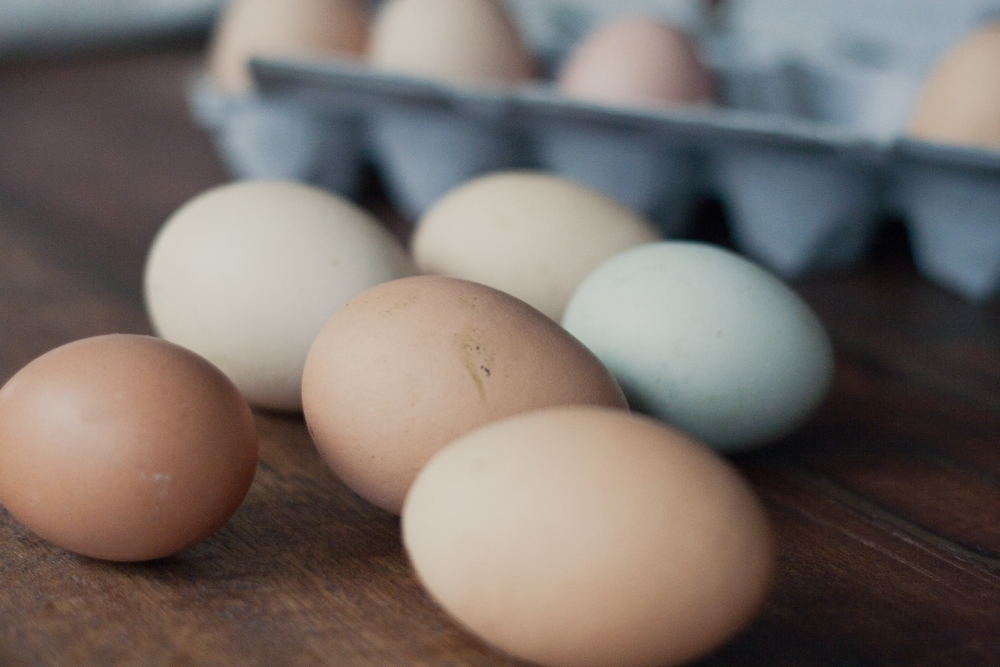
The little green one is definitely my favourite.
